Code: 04442964
Minimal Semantics
by Borg
Minimal Semantics asks what a theory of literal linguistic meaning is for - if you were to be given a working theory of meaning for a language right now, what would you be able to do with it? Emma Borg sets out to defend a formal ... more
- Language:
 English
English - Binding: Paperback
- Number of pages: 304
Publisher: Oxford University Press, 2006
- More about this

You might also like
-

Manchester, Fourteen Miles
50.59 € -

Calcium and Magnesium in Groundwater
225.23 € -

Rumors of Existence
19.14 € -5 % -

Free Will, Consciousness and Self
47.21 € -

Operations Research
74.46 € -

History of the Monks of Syria by Theodoret of Cyrrhus
36.86 € -

Fields of Vision
48.44 € -

I Wouldn't Start From Here
12.59 € -13 % -

Charlie Brown Christmas
19.14 € -1 % -

Fruit of the Spirit
12.90 € -3 % -

Bibliography and the Sociology of Texts
67.70 € -

Elemental Magic
44.55 € -19 % -

Wired for War
12.59 € -13 % -
Cyropaedia
36.86 €
Give this book as a present today
- Order book and choose Gift Order.
- We will send you book gift voucher at once. You can give it out to anyone.
- Book will be send to donee, nothing more to care about.
More about Minimal Semantics
You get 174 loyalty points
 Book synopsis
Book synopsis
Minimal Semantics asks what a theory of literal linguistic meaning is for - if you were to be given a working theory of meaning for a language right now, what would you be able to do with it? Emma Borg sets out to defend a formal approach to semantic theorizing from a powerful contemporary opponent - advocates of what she call 'dual pragmatics'. According to dual pragmatists, rich pragmatic processes play two distinct roles in linguistic comprehension: as well as operating in a post-semantic capacity to determine the implicatures of an utterance, they also operate prior to the determination of truth-conditional content for a sentence. That is to say, they have an integral role to play within what is usually thought of as the semantic realm. Borg believes dual pragmatic accounts constitute the strongest challenge to standard formal approaches to semantics since they challenge the formal theorist to show not merely that there is some role for formal processes on route to determination of semantic content, but that such processes are alone sufficient for determining content. Minimal Semantics provides a detailed examination of this dual pragmatic position, introducing readers who are unfamiliar with the topic to key ideas like relevance theory and contextualism, and looking in detail at where these accounts diverge from the formal approach. Borg's defence of formal semantics has two main parts: first, she argues that the formal approach is most naturally compatible with an important and well-grounded psychological theory, namely the Fodorian modular picture of the mind. Then she argues that the main arguments adduced by dual pragmatists against formal semantics - concerning apparent contextual intrusions into semantic content - can in fact be countered by a formal theory. The defence holds, however, only if we are sensitive to the proper conditions of success for a semantic theory. Specifically, we should reject a range of onerous constraints on semantic theorizing (e.g., that it resolve epistemic or metaphysical questions, or that it explain our communicative skills). So Borg's answer to the question of what a semantic theory is for has a particular, minimal slant.
 Book details
Book details
Book category Books in English Language linguistics Philosophy of language
70.56 €
- Full title: Minimal Semantics
- Author: Borg
- Language:
 English
English - Binding: Paperback
- Number of pages: 304
- EAN: 9780199206926
- ISBN: 0199206929
- ID: 04442964
- Publisher: Oxford University Press
- Weight: 431 g
- Dimensions: 230 × 150 × 20 mm
- Date of publishing: 30. November 2006
Trending among others
-

Rosicrucian Manual
16.48 € -

Language Instinct
14.43 € -23 % -
Essential Chomsky
22.01 € -23 % -

Practice Makes Perfect English Articles and Determiners Up Close
13.82 € -15 % -

Making the Social World
12.28 € -23 % -
Trivium
21.91 € -

Image Music Text
12.38 € -15 % -

Inquiry into Modes of Existence
36.56 € -4 % -

Constructing the World
83.47 € -5 % -

How Language Works
14.43 € -23 % -

Construction of Social Reality
14.43 € -23 % -

What Kind of Creatures Are We?
14.33 € -12 % -
Philosophy of Language
40.14 € -11 % -

Making It Explicit
55.10 € -4 % -
Introduction to Cognitive Linguistics
97.09 € -

On Nature and Language
62.88 € -
Decoding Chomsky
11.77 € -47 % -

Language Hoax
14.43 € -16 % -
Philosophy of Language
28.06 € -
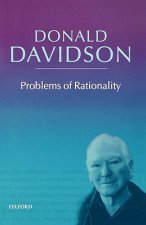
Problems of Rationality
71.89 € -

More than Cool Reason
35.94 € -
Logic and the Art of Memory
152.71 € -
Practice Makes Perfect English Pronouns and Prepositions, Second Edition
15.66 € -14 % -
Semiotics and the Philosophy of Language
26.01 € -
Naming and Necessity
30.10 € -19 % -

Latin
31.84 € -
Authority of Law
54.89 € -

Ascent of Babel
104.88 € -

Inferentialism
177.19 € -

Process Philosophy of Signs
36.04 € -

Translation Equivalence Delusion
114.71 € -
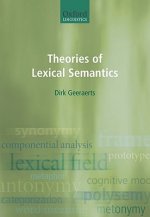
Theories of Lexical Semantics
64.11 € -
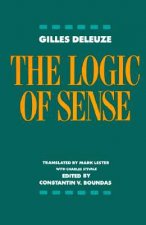
Logic of Sense
27.03 € -4 % -

Philosophy of Language
63.50 € -

Critical Introduction to the Philosophy of Language
67.90 € -
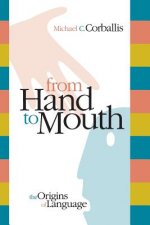
From Hand to Mouth
49.87 € -

How to Do Things with Words
63.60 € -
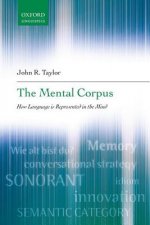
Mental Corpus
61.75 € -

Ontology after Carnap
126.08 € -

Philosophy of Poetry
122.29 € -

Practice Makes Perfect English Verb Tenses Up Close
21.40 € -

Language Animal
40.96 € -
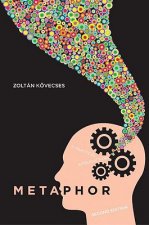
Metaphor
56.02 € -
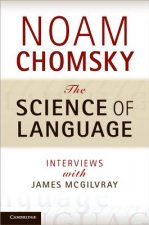
Science of Language
38.40 € -
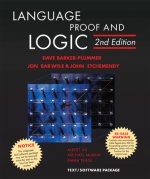
Language, Proof, and Logic
94.84 € -
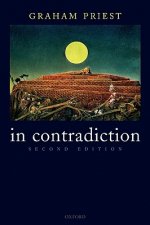
In Contradiction
94.33 € -

Existence and Explanation
214.68 € -

Reflective Equilibrium and the Principles of Logical Analysis
255.96 € -
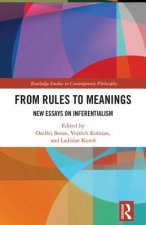
From Rules to Meanings
225.23 €
Collection points Bratislava a 2642 dalších
Copyright ©2008-24 najlacnejsie-knihy.sk All rights reservedPrivacyCookies



 15549 collection points
15549 collection points Delivery 2.99 €
Delivery 2.99 € 02/210 210 99 (8-15.30h)
02/210 210 99 (8-15.30h)